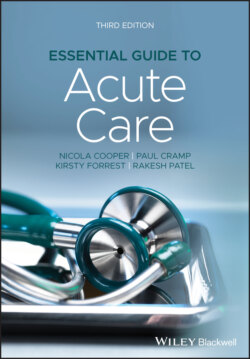Читать книгу Essential Guide to Acute Care - Nicola Cooper - Страница 24
The Benefits and Limitations of Intensive Care
ОглавлениеPhysiological derangement and the need for admission to the ICU is not the same thing. It would not be in the best interests of all patients to be admitted to an ICU. Instead, optimising ward care or even palliative care may be required.21 This decision is based on evidence about prognosis, clinical experience (e.g. recognising when someone is dying), and takes in to account any expressed wishes of the patient. Intensive (level 3) care supports failing organ systems when there is potentially reversible disease. It is appropriate for patients requiring advanced respiratory support alone or support of at least two failing organ systems. High dependency (level 2) care is appropriate for patients who require detailed observation or intervention for a single failing organ system.
For the majority of healthcare workers who have never worked in an ICU, the benefits and limitations of what is available may be poorly understood. Patients with acute reversible disease benefit most from intensive care if they are admitted sooner rather than later. Waiting for someone to become even more seriously ill before contacting the ICU team does not make physiological sense and is not evidence‐based. On the other hand, admission to the ICU does not guarantee a successful outcome. Some patients may be so ill they are unlikely to recover at all, even with intensive organ support. The overall mortality of patients admitted as an emergency to the ICU in the UK is around 25%, but this varies between units and different patient populations.14,22 All potential admissions should be assessed by an experienced doctor. Patients who are not admitted to intensive care should have a clear plan and their ward care optimised.
